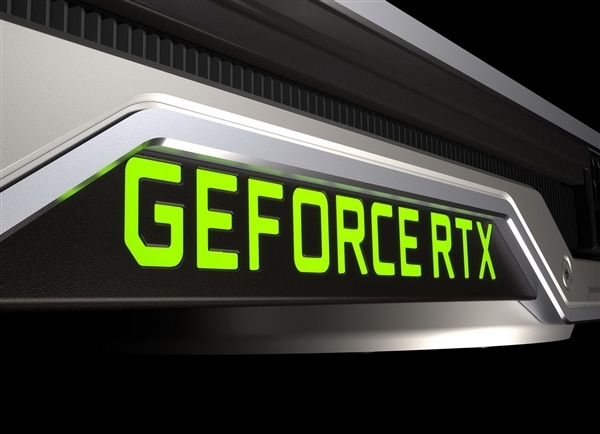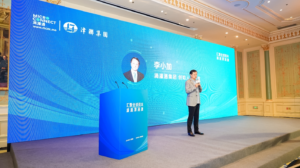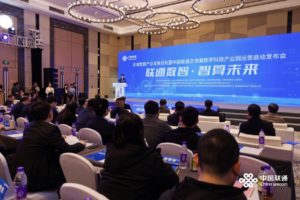Nvidia has no “magic” but how to beat it

[ad_1]
“It is impossible to surpass NVIDIA.” Citrix, a senior chip investor, said categorically. “Even if AMD has a chip with stronger parameters than NVIDIA, it cannot shake NVIDIA’s position in the AI market.”
This is almost the consensus of AI chip practitioners. Whether they are chip giants or American and British start-ups with strong technical skills, if they want to sit on the accelerated computing table dominated by NVIDIA, they have little chance of confronting NVIDIA.
Exceptions may arise, however, if commercial competition is affected by non-commercial forces.
On October 17, the U.S. Department of Commerce’s Bureau of Industry and Security (BIS) updated the AI chip export control regulations for China, giving domestic high-performance AI chip companies an opportunity to catch up with Nvidia.
“After the latest export control regulations in the United States were released, many customers came to contact me, including customers who had previously been indifferent.” Anrui, a salesperson at an AI chip company, clearly felt, “When Nvidia GPUs cannot be purchased, customers consider It’s not who is better, but who can use it.”
The further tightening of the ban has dealt a blow to domestic high-performance AI chip companies and also restricted Nvidia’s development in the Chinese market.
“We must give up all illusions and create domestic alternatives.“This is a sentence often heard in the AI chip circle after the latest US ban.
Domestic substitution in the chip field is an extremely difficult road, but when this road must be taken, domestic AI chip practitioners are thinking about a path to catch up with Nvidia. What is the path in your mind? Welcome to add the author on WeChat BENSONEIT for discussion.
Some people think that taking a completely different path will have a chance of transcendence.
Some people think that Nvidia can be defeated using Nvidia’s magic.
Others thought of transcendent opportunities for business model innovation.
Although they all hold their own opinions, they all know very well that if they want to survive, they must improve costs, improve software, and solve production problems.
Give up all illusions, domestic chips are the only solution
As soon as the new US export control regulations were released on October 17, the already popular Nvidia H800 GPU went on a roller coaster ride.
The price of the hard-to-find 8-card H800 GPU server was already around 2.1 million yuan before the ban was updated. On the day the US ban was issued, the price immediately jumped to 2.3-2.5 million yuan.
A week later, the United States suddenly announced that the control regulations that had only taken effect in November would take effect immediately, instantly pushing the price of the H800 GPU server to the top, jumping to 3.5 million yuan, an increase of 67% compared to the 2.1 million yuan before the ban was upgraded.
Although the price has dropped slightly now, it is still at a high level of 3.1-3.3 million yuan.
“At the end of October and November, customers were basically busy rushing for goods. After they couldn’t get the goods, everyone came to talk seriously about domestic chips.” Yuchen, who is familiar with the chip market, also saw, “The U.S. ban is just a set of punches. , no one can stand the U.S.’s sudden changes in orders, AI chip companies have to seriously consider the direction of next-generation products, and also consider the possibility of domestic foundry.”
Leifeng.com learned that after the ban was upgraded on October 17,Many AI chip companies have had to change their chip designs to comply with new U.S. regulations.
This time the ban has been further tightened, affecting a wider area than before.
“I was already in the AI chip industry when the U.S. chip ban caused an uproar in 2019. At that time, I didn’t feel that AI chips were a matter of life and death for us.” Haoxin, a chip software engineer, felt this time, “If we don’t have powerful AI chips, You can be strangled to death by others, this is related to the fate of the nation.”
Zi Lei, who has been in the chip industry for more than ten years, is also deeply touched. “It can also be seen from the restrictions in the United States that the U.S. government has predicted that AI represents real productivity, and this is a battleground for military strategists.”
“I don’t know who will win in the end,But I know it will be disastrous if we lose. Not only will we lose our leadership in technology, but we may also be replaced by AI.Zi Lei was very determined, “Whether it is for ourselves or for the next generation, we must stand up and roll.” “
Companies in the United States and the United Kingdom were also hit in the head along with domestic AI chip companies.
The British start-up Graphcore is one of the few AI chip companies with an established domestic team. After the ban, due to the characteristics of its chips, modifying the design will make its products uncompetitive in the Chinese market. Graphcore’s employees have almost no work to do. It was at a standstill and finally had to disband the Chinese team.
NVIDIA is also restricted by the ban. The Chinese market contributes tens of billions of dollars in revenue to NVIDIA’s data center business every year, and it cannot sell profitable high-performance chips to the Chinese market.In the short term, it will be a loss of Nvidia’s revenue, and in the long term, it will be a loss of control of the Chinese market.
This is why Nvidia has been actively launching chips that comply with U.S. regulatory restrictions.
“The performance of H20 is about 1/5 of H800, but the price will not be too cheap., because it occupies the production capacity of H800, the price may be 1/2 or 2/3 of H800. Such a product is not attractive enough to customers, and it is difficult for domestic companies to compete with American companies when purchasing such products. ” Yuchen also said, “The H20, which was expected to be sent for testing at the end of this year, will now be postponed to the first half of next year. This is an opportunity for domestic chips. “
The most powerful opponent has also been restricted, and AI is an industry that cannot be left behind. Domestic AI companies have no other choice. They must give up all illusions and start making domestic chips.
The ban is bad for everyone except Huawei
Just as China’s AI chip companies are an exception and have the only chance to catch up with Nvidia, Huawei is also an exception under the restrictions of this ban.
Since 2019, Huawei has been restricted by the United States. Since then, Huawei has begun localization. It began to make domestic substitutions 4 years earlier than the domestic AI chip companies affected this time, making its Teng AI chips become such An object that was eagerly purchased.
iFlytek publicly stated at the 2023 third quarter performance briefing that Huawei Teng 910B has basically achieved the benchmark of NVIDIA A100.
“This shows that Huawei is doing really well in some places.” Chip algorithm engineer Yi Sen said bluntly, “For Huawei, which uses the DSA (domain-specific) architecture, the standardization of the chip is a problem.”
DSA can be regarded as a chip specially designed for a certain type of model. “Its standardization is reflected in parts.If the DSA chip designed for a certain type of model is not generalizable enough in this type of model, it means that the software work has not been done well.“Eason thinks.
This involves software maturity and ecological issues, which is where Nvidia’s moat lies. Haoxin and Yuchen have different views on whether Huawei can build a software ecosystem as powerful as Nvidia based on its self-developed architecture.
“In 2017, when Caffe was the mainstream AI framework, Intel spent a lot of energy on making the OpenCL version of Caffe, with the goal of allowing more developers to use it to seize the AI market.” Haoxin said, “But because only Intel went there Maintaining this set of things did not shake Nvidia’s position in the end. So even if Huawei spends a lot of manpower and resources on adapting algorithms and applications, it will be difficult to build a strong ecosystem.”
Yuchen believes that Teng can at least succeed in the domestic government and enterprise market.
“Taking into account the special circumstances in the country and the government and enterprise market, which must consider domestic substitution, Huawei can at least invest heavily in this market to make its Teng chips available.” Yuchen also said, “As for whether it can be used in the commercial market Whether it will be successful or not, it is difficult to judge now.”
Considering factors such as chip design and the company’s resources, Huawei is currently the Chinese company with the most opportunities in the AI training market.
Yunshuo, who is very familiar with the field of AI chips, has madeOptimistic prediction: “The future domestic AI training market belongs to Huawei, and the non-Chinese market belongs to NVIDIA.”
But there is a premise: Huawei must successfully solve the problem of chip manufacturing.
According to Citrix’s optimistic estimate,Domestic expansion of 14nm chip production lines will not be until 2025 at the earliest.Domestic 14nm is not yet mature, and it involves export controls of semiconductor materials and equipment, which will take time.
“Yield rate is also very critical, directly affecting the final cost, which is the basis for competition in the commercial market.” Citrix’s attitude is clear, “However, domestic semiconductor materials and equipment companies can give me some surprises every year, so although the short-term pessimism , but I am still optimistic about it in the long term.”
Huawei’s achievements have given confidence to those people and companies who want to catch up with Nvidia through innovation.
[ad_2]
Source link








